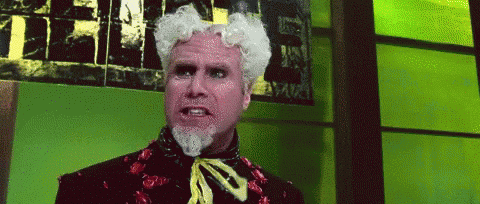The Problem(s) With Twitter
Why creatives are moving to Mastodon - and why I'm joining them

I’ve been on Mastodon for about five minutes now and it’s safe to say I like what I’ve seen.
Of course, because it’s Mastodon, I’m not on “Mastodon.” That’s like saying “I’m on email.” As far as I can tell, Mastodon is just the protocol for a whole bunch of different social networks that can all talk to each other. I’m on mastodon.nz, which looks like a good, welcoming community. It’s raw, a bit clunky, scattershot, off-kilter. Already, it’s striking how different it feels from Twitter, or at least, what Twitter has become.
I never really fit in on what everyone is now calling “the bird app.” It became clear, pretty quickly, what you needed to become big on Twitter. If you had a following from outside the app, like being an author or a Kardashian, it was easy enough. Or if you had a specialism, like actual deep science or tech knowledge, your following tended to aggregate around those wellsprings of knowledge. But to become a big deal on Twitter via Twitter itself, you needed to Post. You needed to adopt a personality or posting archetype and double down on it. A lot of the time, the personality adopted was, well, kind of horrible, or at least it was in the political and journalism circles I followed. An post-ironic, world-weary, ultra-supercilious personality dominated. Permanently angry, yet arch and distant. You could be mad about stuff at the same time that you were flippantly dismissing everyone else who was actually mad about it because, You, the Poster, were Above All That.
I didn’t like it but at the same time, it molded my online personality. It affected everything and everyone on Twitter. If you wanted your stuff to get seen, you had to Post, and even if you were genuinely earnest or enthused about something, the precedent of coating it under pearlescent layers of post-irony was almost unavoidable.
And then there’s the other kind of Poster, which is the sort that finds the worst stuff in the world and signal-boosts it for clout.
It’s an understandable instinct. We all want to avoid being associated with bad out-groups, right? And to know who the bad out-groups are so we can avoid them? And of course journalism is often highlighting bad things. But, importantly, journalism offers context — or at least, it does when it’s done right. On Twitter, simple virtue-signalling was immediately weaponized, often by sociopaths who recognized that outrage was a perfect path to acquiring a following. They made great use of it. For a while, I tried to spend my time online suggesting that signal-boosting your political and ideological enemies was wildly counter-productive, but this was never popular. People just got mad at me. “But this guy! Look how bad he is! Look at the terrible thing he just said! No-one should have to see this! I’m going to show it to everyone!” Arguably, this behaviour is what ultimately gifted the world President Trump. On New Zealand Twitter, with its blessedly lower stakes, look-at-this cloutposting reached its nadir when terminally online lefties started screenshot-mocking the National Party social media pages for making memes incorrectly.
They’d been played. National, utilizing the either the services or the tactics of Tory-friendly agency Topham Guerin, was committing design crimes like poorly-labelled graph axes or using uncool fonts specifically to wind up terminally online lefties who would then signal boost their political ads for free. It was brilliant. Instead of articulating their actual ideas or values, which might win allies, an online army of lefties had been deputized as water-carriers for their own opposition.
One of the reasons I like Mastodon is because there are specific mechanisms and server rules that might help to disincentivize this infuriating, self-defeating habit. For example — with the obvious disclaimer that I am new and don’t know much about how it works yet — it seems that on mastodon.nz, you’re encouraged to hashtag political stuff, or chuck a content warning on it. It’s about choice. If using hashtags is standard, users can filter out stuff they can’t be bothered with, or specifically zero in on it. If very specific content warnings for controversial content that go beyond just “NSFW” are normalized, it’s always up to a user whether they want to see it. It might finally be an end to oh my god, this stuff is disgusting! Let’s show the world!
The federated nature of Mastodon instances is also looking like a real boon. In the Dawn of Everything which has become my “no, really, you absolutely must read this, ideally yesterday, but I’ll settle for right now, look, here are some bits I’ve highlighted or memorized” book of the moment, authors David Graeber and David Wengrow make the case that indigenous societies in pre-colonization North America featured vastly more social mobility than our world does today. There was constant, radical experimentation and flux across different nations or tribes. If you didn’t like the way a given nation did things, that was (often) fine. You could leave, and find a new nation that was more to your liking. The authors suggest this happened frequently, and that, fascinatingly, many indigenous people traveled far further than it’s common for people to do today. Then the hegemonizing, colonizing forces arrived. There was now one way to do things and you couldn’t leave. My way, without so much as a highway. In Margeret Thatcher’s infamous words: there is no alternative.
Just like we’ve got used to living in extremely similar nation-states where we can’t easily experiment with new ways of doing things, we’ve become inured to an Internet world where there is no alternative. The corporate consolidation of the Internet has given rise to an often-joked-about status quo (posted, of course, on Twitter).
I'm old enough to remember when the Internet wasn't a group of five websites, each consisting of screenshots of text from the other four.
— Tom Eastman (parody) (@tveastman) 7:28 PM ∙ Dec 3, 2018
We’ve all become used to how bad Twitter is, like frogs broiled in a collective pot of Posting. It’s taken Musk’s terribly-executed takeover as Main Character-in-Chief to shock a lot of us into looking for an alternative. Plenty of people, including me, had already drifted away. I’d deleted the app on my phone and only dropped in occasionally on the web interface where adblockers and other plugins made the experience sporadically tolerable. But now, instead of drifting apathy, there’s a real mood to look for alternatives.
Naturally, people are worried about what that might entail. I’ve seen prolific Twitter users who use the platform to advertise their livelihood worry that their reach will be circumvented on a federated platform like Mastodon. And that’s understandable, but you also need to know that if you were on any of the big platforms, your reach was already being artificially curtailed. If you built a platform on a Meta property, like Facebook and Instagram, your ship sailed a long time ago. Want people to see your stuff? Pay up. The last major platforms where unmonetized virality is possible are YouTube, Reddit, and TikTok (and, email, sort of). YouTube is already a morass of a few top creators trying ever more desperately to game the algorithm and trust me, you’re not as good as they are. Also, making videos is hard. Reddit is a double-edged sword: it sometimes works for creators who need to be discovered, but the site’s culture and moderators have an inherent, bizarre hostility to creators sharing their own stuff. These rules are enforced sporadically and the fate of your self-promotion will often fall to the whims of whoever is modding a particular subreddit on a given day. Redditors moan constantly about a lack of original content, somehow missing the point that much of the site has rules against posting original content. If you make stuff, your best bet for being seen on Reddit is for one of the site’s many semi-professional content thieves to steal it, post it without consent or attribution, and for someone in the comments to recognize it and drop a link to your Instagram or YouTube.
I have no idea what the deal with TikTok is. I’m too old for that shit.
But if you are a creator on Twitter, chances are your reach has been bounded for a long time. No matter how many followers you supposedly had, if you were posting there, your content was being algorithmically curated, and was probably being shared and signal boosted by one small set of people who the algorithm had pegged as liking your stuff. If you that set was big enough, you were probably doing fine, but if not, well. Unless you are a very successful Poster, you have probably got nothing to lose by going to Mastodon, where the lines designating the borders of different communities are clear, instead of invisible and arbitrarily enforced by proprietary algorithm. A small audience that’s 80 percent engaged is, potentially, much better than a large audience that isn’t engaged at all.
I’m not sure why I’m writing this screed, which has turned into more of a missive, or possibly even a treatise. I suppose it’s because discovering Mastodon has me wanting to write and share stuff again. The idea that there might be an audience (however small) that is interested in anti-inflammatory discussion of the things I’m interested in is intoxicating. I love the idea of making things without feeling like my creativity is being invisibly shaped by algorithmic necessity, the thought that I can post without Posting. I have this FDR quote knocking around in my head: “Bold, persistent experimentation,” and the feeling that it’s what I need, what the internet needs, and what the wider world could do with. It feels like there’s once again a welcoming wall against which I can throw stuff, and see if anything sticks.
At last, there is an alternative. But not just one. There are lots of them.
See you there. And also here.




